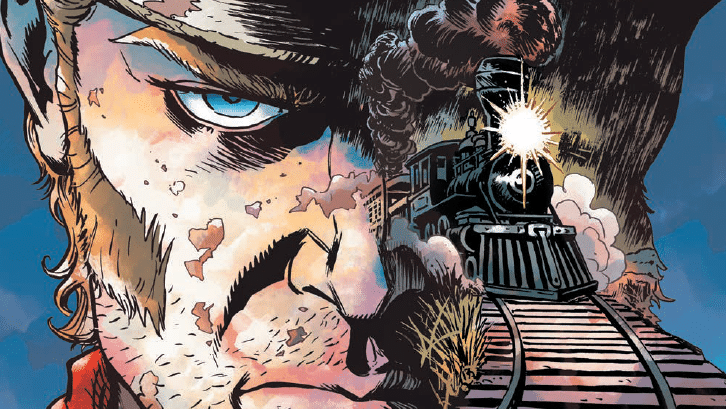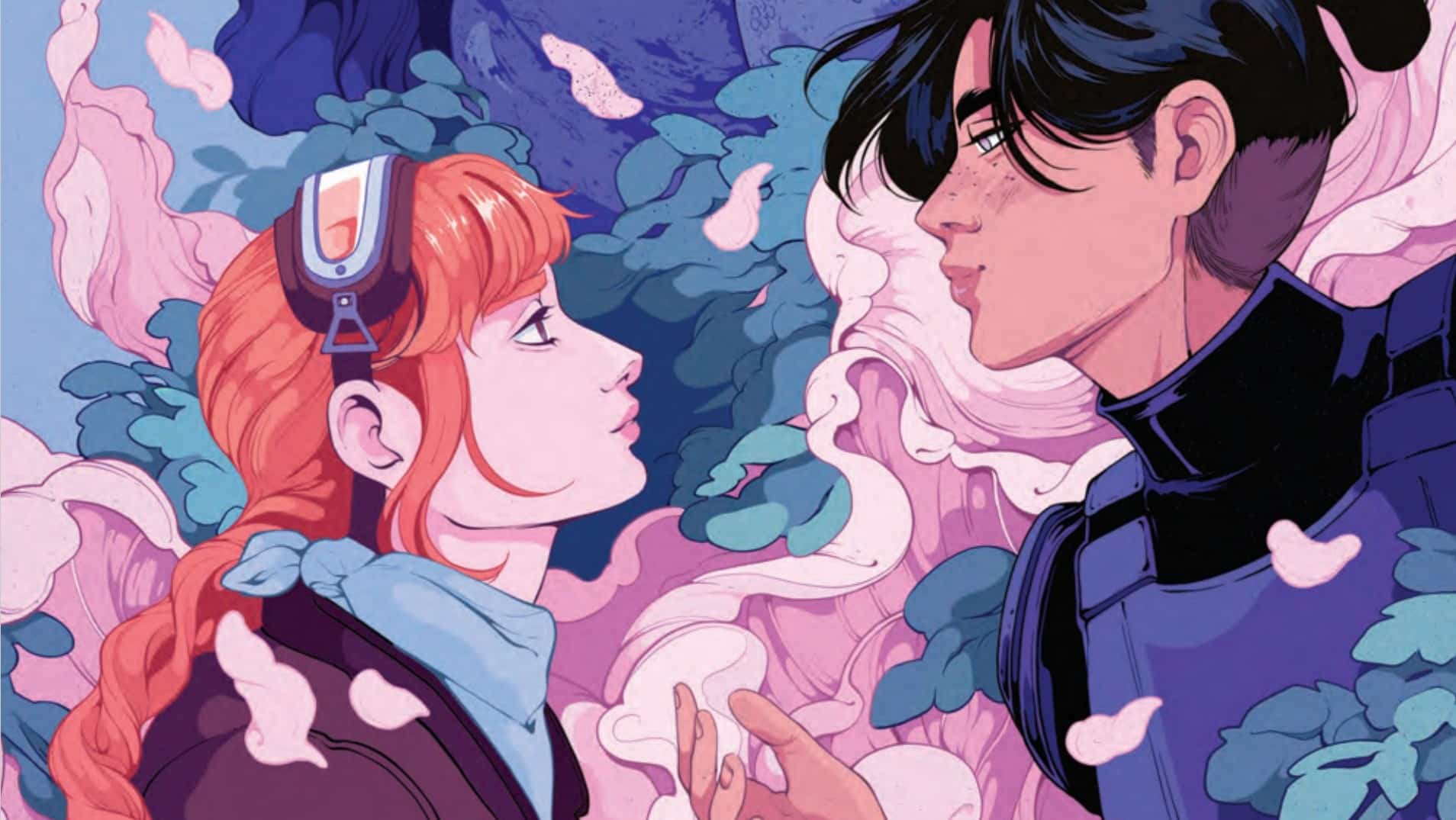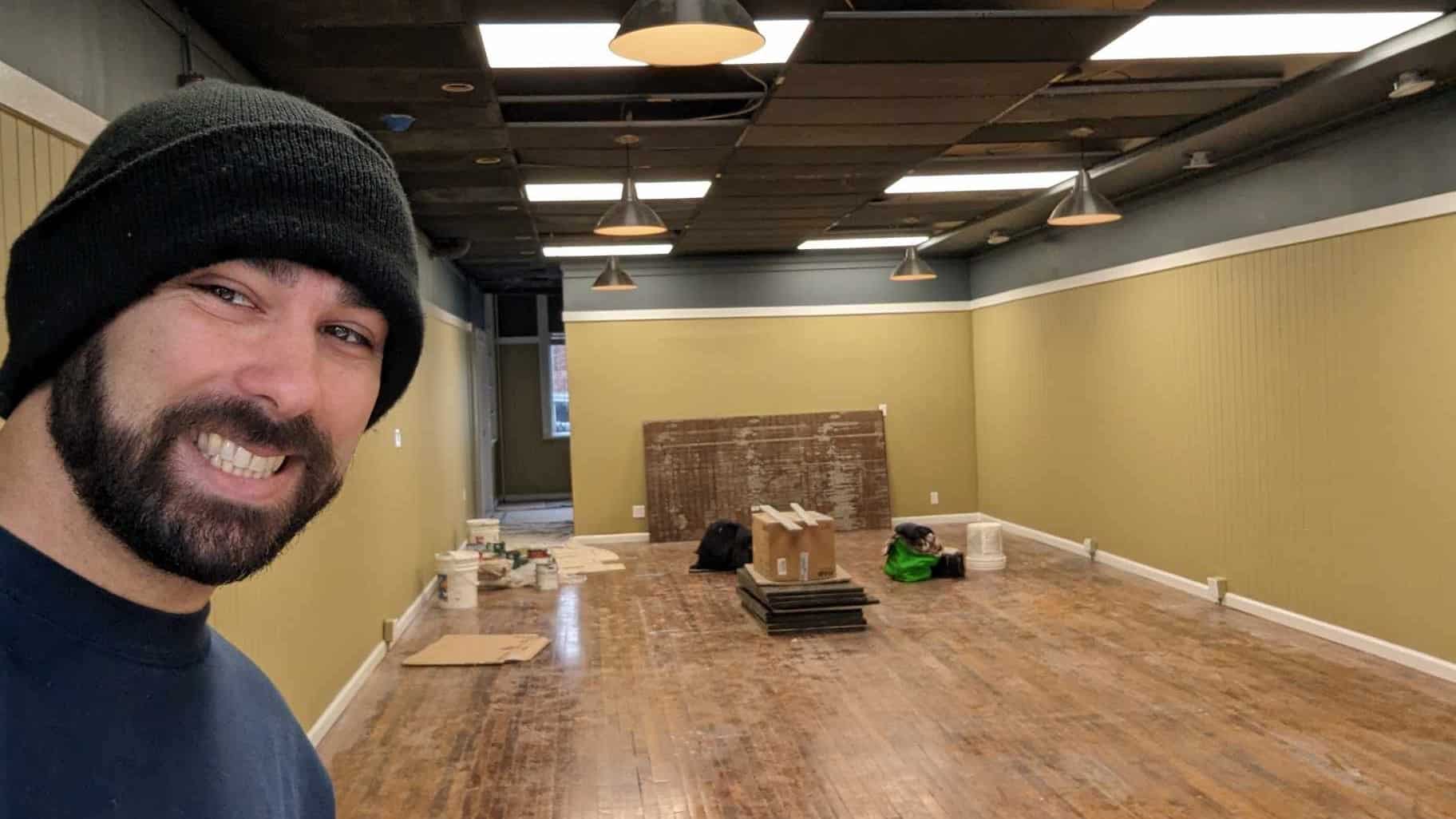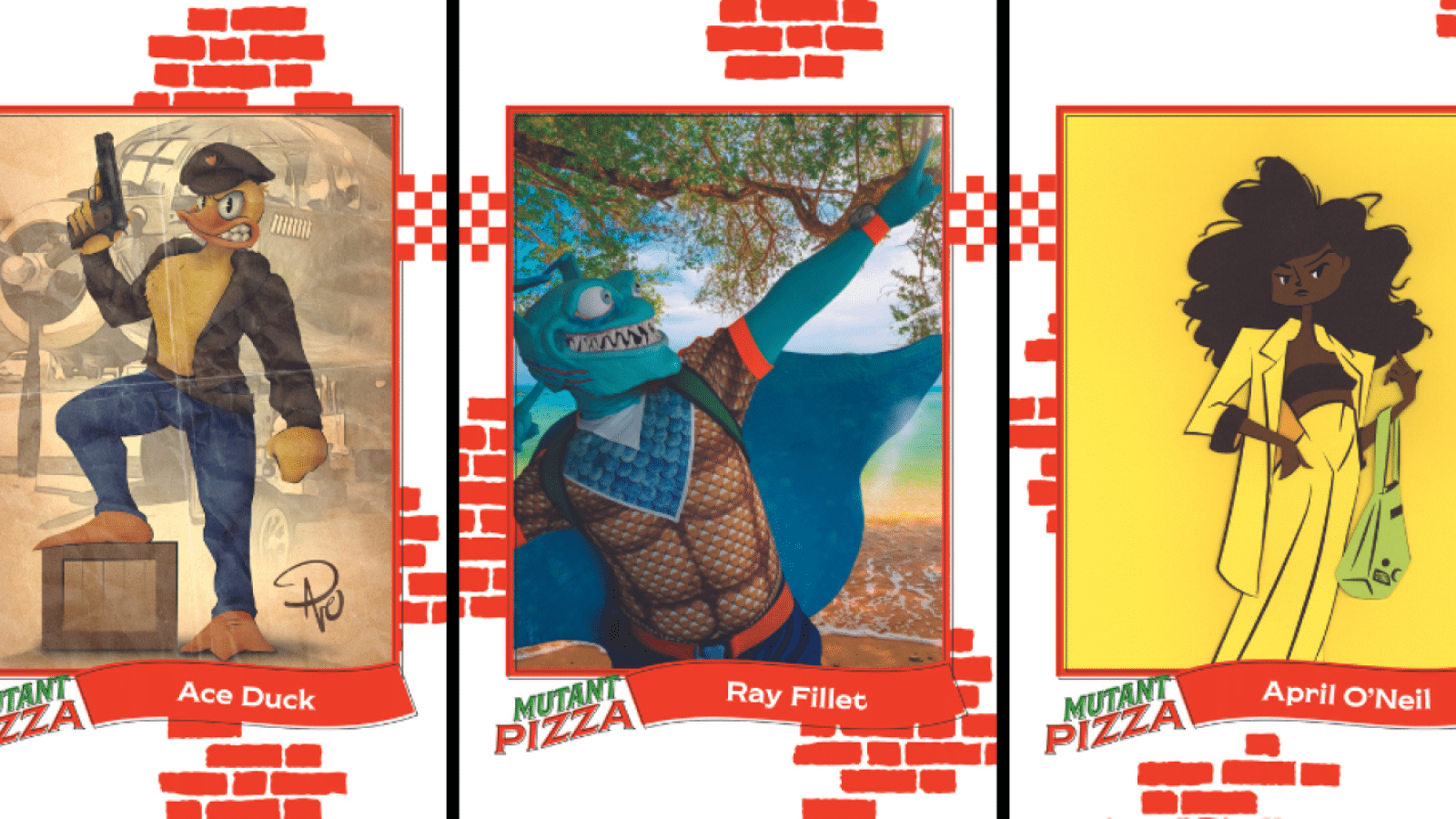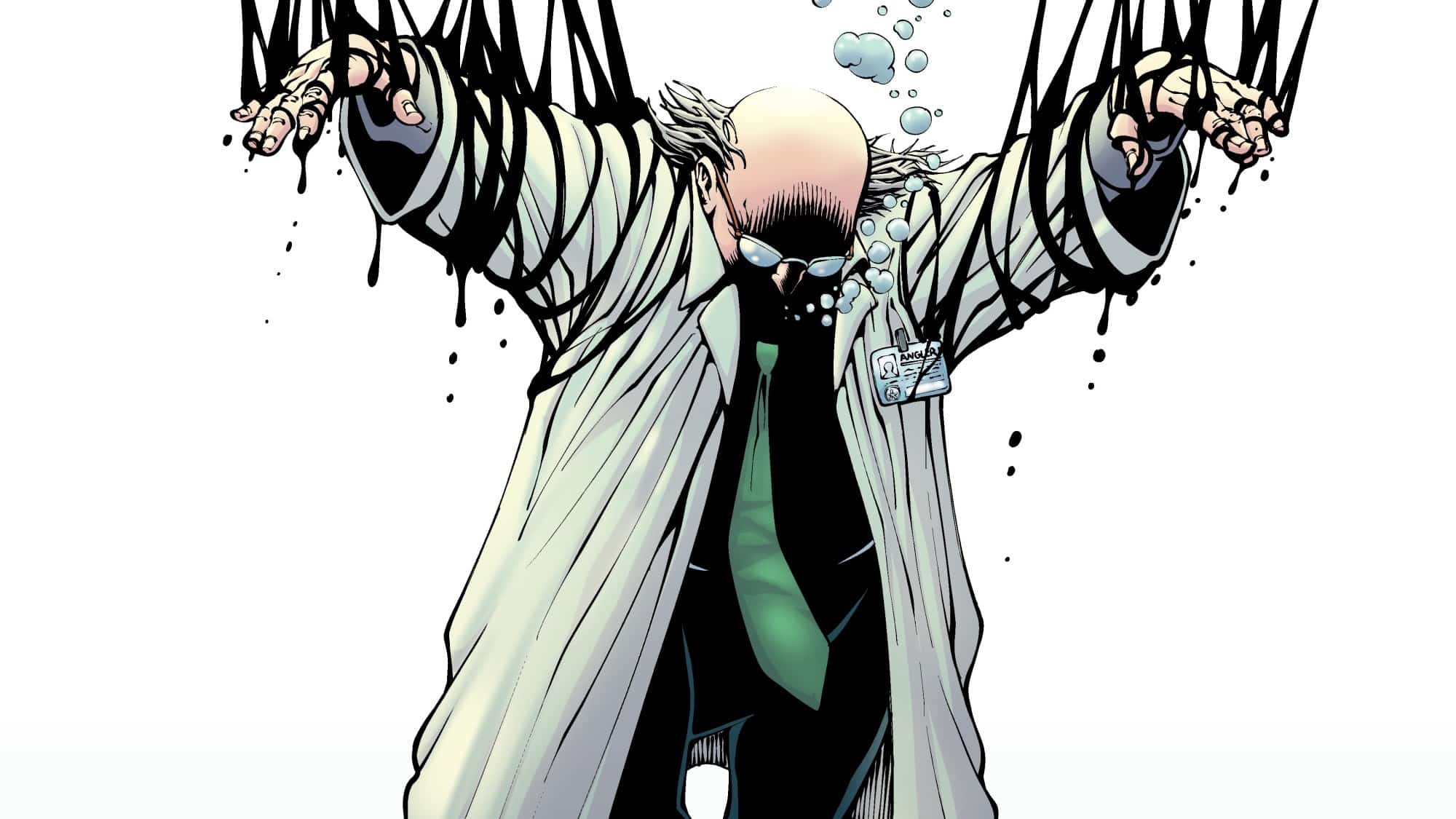Undone By Blood is an anthology Western from Aftershock Comics by Lonnie Nadler, Zac Thompson and Sami Kivelä. It features a period story of the American West, juxtaposed with the pulp novel tales of cowboy Solomon Eaton. The second volume comes out November 10th. We sat down with writers Lonnie & Zac to discuss the series as it ends.
Zachary Jenkins: What I’ve found most interesting about this follow-up to your first Undone by Blood title is the anthology standpoint. It’s taking that metatext about Solomon Eaton and exploring a new angle. Lonnie had talked about the anthology idea previously. Why is that such an attractive way to approach something like this instead of continuing with the characters in the world that you had previously established with Sami?
Lonnie Nadler: It doesn’t tie us down to characters who Zac and I felt their journeys were completed. We don’t have to reach and stretch things that we think would lead to a thinner second arc by continuing Ethel’s story and the first volume that was over to us. And we didn’t want to feel like it would have been half-assed if we had just continued that story.
Our initial intent was to explore the themes of the West and the Western and how those permeate through decades of American culture. A more honest way to do that was to jump to a completely new character and a completely new time and setting to explore the impact of that as opposed to in the 1970s in the first arc.

Zac Thompson: Thematically Western deal with consequences, right? Like they deal with people making choices and then reaping the consequences of that moral action. I think that at the end of Undone by Blood or The Shadow Of A Wanted Man, you can’t tell a story that happens after that and be true to the themes that we set up in the world.
Jenkins: One thing that’s different, is the focus on Silvano, a Mexican immigrant who has just recently been hit by the Great Depression. What research did you guys do to get into the mindset of era and specifically the immigrant experience in that time?
Lonnie: We did like, as usual, a silly amount for research. For those who don’t know Silvano’s a postal worker and we were reading documents from the period that were released by the actual postal service with their mandates and stuff. We would read documents about like the history of mining during over the turn of the century for Sol’s storyline to like a lot of primary documents is what we were looking at. That’s what I find the most useful to get into character headspaces.
There’s newspapers in the book and all of the headlines from the newspapers are actual headlines from newspapers from that time period. We didn’t make stuff up, it was directly taken from stuff we’d found in our research.
Zac: I read a lot of Dashiell Hammett stuff. He was the quintessential noir novelist, but also like he was actually a post-war era private dick. He has a bunch of stories about like having three cigarettes in his pocket and like tripping in a puddle and then like dropping them in the water. It’s the great depression so he has to take them and dry them in the sun so he can smoke them later. We’ve always tried to find stories from people of that era.
We even looked at a history of the postal service and looking at what postal workers like Silvano would get assigned to and what they would do. Oftentimes it was the craziest most out of the way routes that you couldn’t take a car out there at this point. You have to go on horseback and go down the side of the mountain and then get in a boat and go for like another mile or two to deliver mail on this road. It was at this point that like the postal service was starting to connect all of America in the 1930s. And so they were like, “oh, well, we’ll get the immigrant guys to do those routes. They’ll break their backs.” I think it was actually reading that actual article that led us to sort of reverse engineer the entire story around that sort of like super interesting character that would be in that predicament at that time.
It’s an ever growing process for us too, I feel like there’s times where we’re like writing a page and then we’re asking what would the border look like in 1934? And then we’re on a Zoom call for an hour, trying to find a photo of what the booth at the border looked like to be an accurate

Lonnie: And like how bad were guards back then? Are they the same assholes like they are now, or was it like more lax systems? Almost every page had something we had to do some research for. One interesting piece of research that we both loved and wanted to put in the book, but just didn’t fit, apparently mailing by post was cheaper than a train ticket. So parents would actually mail their children through post because it would guarantee them a place on the train and could avoid paying the full price of the ticket during the depression
Zac: We opted not to go down that road because of like a border crossing and the human trafficking of it all and just was like, I can’t.
Lonnie: We’re already dealing with some like touchy subject matter. You probably shouldn’t touch that.
Jenkins: One of the elements that you bring over from the last story is the I mirror of the Solomon Eaton story which is a pulpy American cowboy tale. Obviously that has always been a piece of fiction, Cowboys in America. Obviously there are people who did it but how we have framed that up in culture is very different than reality of the situation. What made that such an appealing thing to, you know, be your through line in this, you know, in these titles?
Zac: I think because they’re at their core morality plays and they’re something that existed in this undercurrent in American culture for forever. I think the thing that we talked about the most was Westerns were at a point in time, the most dominant sort of film genre in American cinema. And they’ve kind of gone away and people quote unquote don’t like them or find them boring, but they have so much to say about now really and the inequality or looking at people who are oppressed rising up or people who are working within the cracks of a broken system. All those stories existed in Westerns and they’re sort of American myth-making. You could take anything that goes on on the day-to-day basis at Amazon, and it’s probably like an oil Baron equivalent in a Western novel at this point in time.

Lonnie: It’s always interesting to us, people so often say “oh, I don’t like Westerns, but I like to this”. And it’s just such a weird thing to say that you don’t like Westerns to me because I think people have a preconceived notion of what they are as old media with people talking silly. If you actually watch one that’s not really what it is, especially if you watch spaghetti Westerns. We wanted to, to really explore the myth of the West. We’re two Canadians, so it’s kind of a weird for us to explore, but I think that almost makes it more interesting in a way, because we’re coming at this from an outside perspective.
Jenkins: Something that you guys touch on in this series is that you get to the end and all the Solomon Eaton stuff more or less ends with a triumph, he is the hero of a story. And I would not say that the main story in either volume has a happy ending. At the best it’s bittersweet.
Lonnie: That for us was the goal. We are going to show this John Wayne-ass character who rides into the sunset and the more quote unquote, real storyline is going to end with not even bittersweetness, but like more, a sense of like harsh reality that Westerns often lacked because they were so concerned with selling selling’s notion of, of like grandiosity to the audience.
Jenkins: How do you in your work or even in the entertainment that you enjoy, find the balance between that romance versus the reality of some of these that are based in history?
Zac: I feel like that was the big thing that sort of drew us to the project in the first place. Exploring that tension between the two things and letting the POV character essentially be that stand in for the audience that sort of sometimes projects themselves into these larger than life conflicts and starts to see them as representative of something more. And then they’re like, “oh, you know what, I’m going to go. And I’m going to do that. I’m going to be that guy.” Arc two ends pretty brutally and arc one ends pretty brutally.

It’s always about what can we take from these myths and apply them to quote unquote, the real world or the version where things don’t work out perfectly; where bullets don’t ricochet off of like a tin pot hanging from a thing and then going some guy’s throat and then like pass through that and, you know, hit a horse in the butt so it runs, you jump on it and like you ride off into the sunset. Like we love that kind of stuff and that larger than life element of it. And I think it has a huge history in comics too and we actually kind of wanted to have a conversation with the way it was presented in comics too, because there’s like, you know, we’re huge fans of Jonah Hex and we’re huge fans of like those older westerns that sort of…
Lonnie: Blueberry and stuff.
Zac: Yeah. It just sort of permeated the market at a different time, you know? And like they, and I think every publisher had a Western comic at some point in time and now it’s like, they’re all gone. There’s there’s nothing there other than like Pulp, I had to compete with the best, one of the best teams…
Lonnie: Same concept, same release.
Jenkins: Ed Brubaker and Sean Phillips graphic novella…
Zac: Don’t say their names! [laughs]
Lonnie: This idea of having a conversation with the past is very appealing to both of us as writers and to me very much. All fiction is emblematic of its time, but it’s distilled through this lens of the unreal. I took a course in university that was called The 20th Century Writes Back. It was a whole course about writers and famous books being responses to older books that we maybe didn’t realize. And that was basically the whole point of Undone By Blood, to, through fiction, engage with fiction of the past and try to understand those times through our times without necessarily like judging those times which, which I think was important.
Zac: And not doing it too on the nose, right? Like not dealing with like explicit, like Reaganites in the 80s, banging their moral agenda drums. We were just trying to do morality plays set in their own time that say nothing’s changed.
Lonnie: It is that balance between romanticizing it and loving it and being able to criticize it at the same time. I’ve always been about this kind of idea of not judging the media of the past based on the morals of today. We’re not saying look how bad these people were for doing this. We understood it was a different time. And whole point is to juxtapose that with a different way of life, to see how those, those ideals of the Western failed to carry weight through history.

Jenkins: The anthology series used to be incredibly popular but it has really fallen. You still have some anthologies in comics today Ice Cream Man, for example, recently or, to some extent, The Silver Coin that Michael Walsh is doing right now. Do you see a place for an anthology format in the comics landscape of today, which is wildly uphill from where it was even when you guys started this project?
Zac: Would I wish to see it? Yes. Does it exist? I don’t think so.
We were willing to experiment to see if that was the answer but it’s just an interesting thing. Like it can create a feedback loop. Someone can read the second arc and enjoy it and then go back and read the first. And there’s something approachable about that, which is like not a word that’s often used with anything in a comic book store. So we really wanted to like, see if we could, if you get into this industry and, and after a little while you want to experiment and you want to do things that sort of invite people to join into the experiment. We thought doing an issue six of a book that people read, but not a ton of people read didn’t feel fair to people who wanted to join in now. Hopefully everyone from the first time around comes out and we get new people and then you can kind of do that every four or six months or whatever, or every year. And it should sort of create this rolling momentum, but it didn’t.
Jenkins: There’s not going to be a continuation of Undone By Blood, I assume?
Zac: Not at the moment. Yeah.
Lonnie: It’s possible that it does, but it’s not currently in the works.
Jenkins: Do you think there is a way to do a series like this, an anthology series, especially one not connected to a larger superhero IP in the environment that we’re in? Or is that just too far out from the reality of the comics market?
Lonnie: We brought up Ice Cream Man, or like Brubaker and Phillips’ Criminal as proof that it can work. It just has to hit. There’s no way to predict what’s going to land and what’s not. There’s nothing inherent about the anthology format that makes it undesirable for readers or publishers, it’s just a matter of market tastes at the right time. That’s really what it comes down to. So much of this industry is a crap shoot when it comes to that and you can design cool looking characters all you want and you can have the hottest elevator pitch in town, but if your book comes out the same week there’s another book that gets talked about more than, you know, too bad, so sad you’re out of luck. So, so much of it comes down to the right ingredients at the right time with the right people, the right market.
Zac: I think this type of thing can work over a longer period of time. You can’t necessarily just put out one, you want to keep it going. I think in order to create readership, it has to show that there’s a long-term investment. I think there’s something interesting about that Brubaker and Phillips model where they go this is our new graphic novel series, here’s the first one, here’s the release date for the second one, here’s the release date for the third one. We have a plan. When you make the investment in the first book, you can dip out for two and three, come back for four or whatever, but you know that they’re there and there’s a release schedule for them. I think that people respond to those sorts of things too. You don’t know what people want until after you’ve released the thing.

Jenkins: Now speaking of the market today, what do you guys got going on? Zac, you just had a book announced at Marvel, a tie into Devil’s Reign…
Zac: Yeah, lots of devils in it.
No, it’s a Dr. Octopus book called The Superior Four and every member of this evil Fantastic Four is another Doctor Octopus. So it’s an insane thing you can really only do in superhero comics and we’re just going to have some fun for three months.
Lonnie: Undone By Blood Or The Other Side Of Eden comes out November 10th in comic book shops, and then two weeks later it will be in bookshops. Zac and I have just finished the first issue of our next series that will also be published by Aftershock. And that one will be drawn by Piotr Kowalski…
Jenkins: Who did Come Into Me with you.
Lonnie: The three of us have been talking about literally for like four years at this point. So it’s finally coming to fruition
Zac: And it’s something that Pitor brought to us, a world that he built and said, I want you guys to sort of engineer this for me and here’s some art from this world and like can you take these characters and run with them? So we’ve been building it in tandem with Pitor for about twoish years now.
Lonnie: We obviously can’t say too much, but I genuinely think it’s one of the best, first issues that Zac and I have written together. And I truly believe that there’s no other book like this. There hasn’t been before and there’s not currently for sure. So I think it’s gonna be shocking to a lot of people.
Zachary Jenkins runs ComicsXF and is a co-host on the podcast “Battle of the Atom.” Shocking everyone, he has a full and vibrant life outside of all this.

